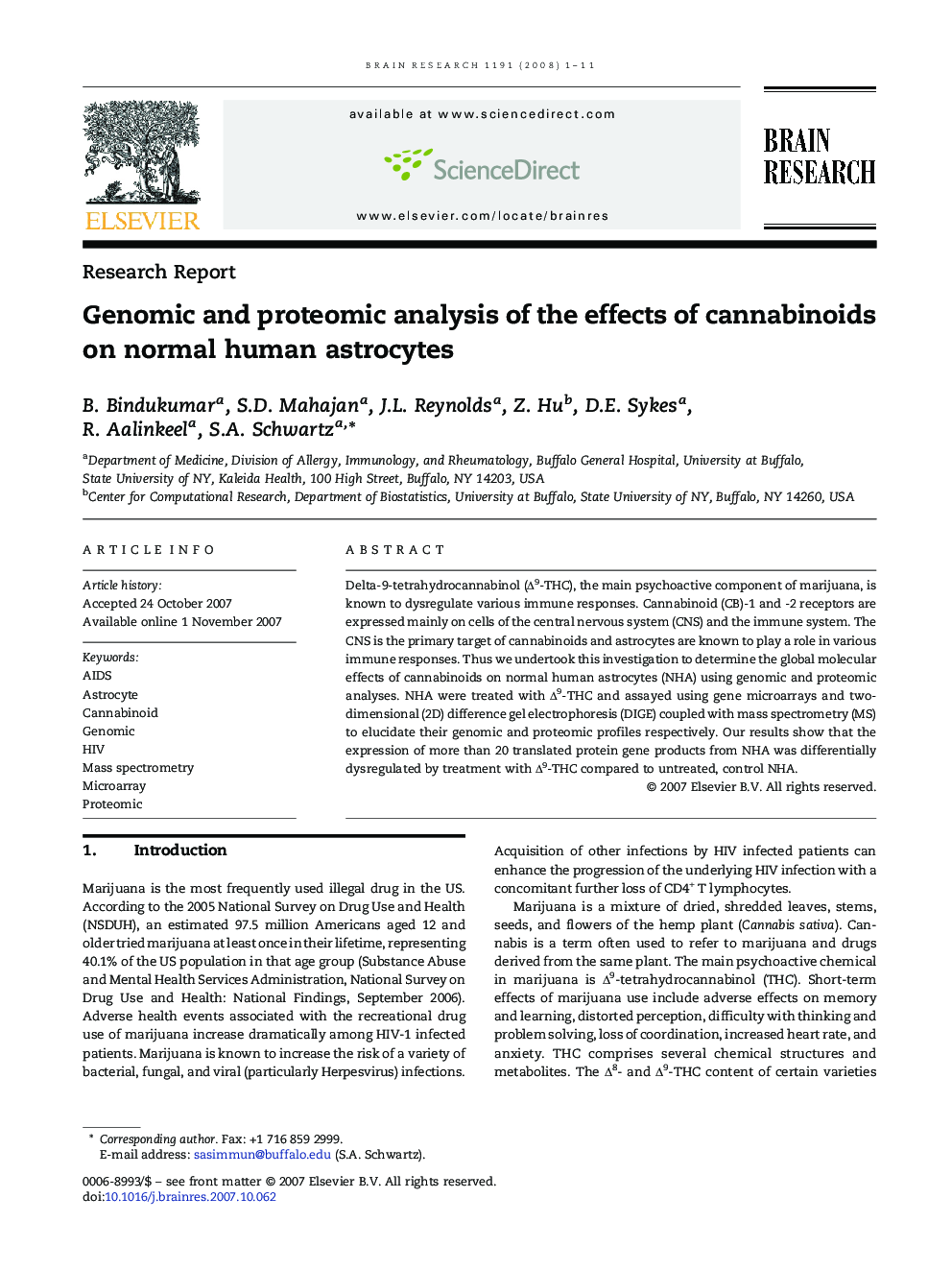| Article ID | Journal | Published Year | Pages | File Type |
|---|---|---|---|---|
| 4330019 | Brain Research | 2008 | 11 Pages |
Delta-9-tetrahydrocannabinol (Δ9-THC), the main psychoactive component of marijuana, is known to dysregulate various immune responses. Cannabinoid (CB)-1 and -2 receptors are expressed mainly on cells of the central nervous system (CNS) and the immune system. The CNS is the primary target of cannabinoids and astrocytes are known to play a role in various immune responses. Thus we undertook this investigation to determine the global molecular effects of cannabinoids on normal human astrocytes (NHA) using genomic and proteomic analyses. NHA were treated with Δ9-THC and assayed using gene microarrays and two-dimensional (2D) difference gel electrophoresis (DIGE) coupled with mass spectrometry (MS) to elucidate their genomic and proteomic profiles respectively. Our results show that the expression of more than 20 translated protein gene products from NHA was differentially dysregulated by treatment with Δ9-THC compared to untreated, control NHA.
